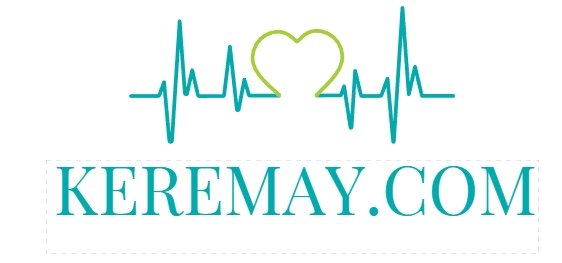Choosing the right foods to fuel your body can be a daunting task, especially with increasing amounts of information and nutritional advice available. However, with some thoughtful consideration and planning, it is possible to design your own bespoke diet that meets all of your dietary preferences and fits into your unique lifestyle. In this article, we will explore the various approaches to curating your own nutrition plan that can work for you.
1. Achieving Optimal Nutrition: Adaptation is Key
Consuming a healthy, balanced diet is essential for maintaining optimal nutrition, yet everyone’s nutritional needs are unique and must be accounted for. Your metabolic rate, activity level, macro- and micro-nutrient needs, the environment you live in, and any health issues you may have all play an important role in determining the optimal diet for you.
Fortunately, we are able to adapt our diets using a few strategies:
- Monitor your nutritional intake: Being aware of and overseeing the nutrients that you are consuming is the only way to ensure that your body is getting the energy and nutrition it needs. Track your portion sizes, the number of calories, vitamins, minerals, and other nutrients you take in throughout the day.
- Plan your meals: Meal planning on a regular basis will help you to ensure that you get the variety of food that is essential for optimal nutrition while sticking to a healthy routine. Consider what foods you buy and their nutritional values, and dont forget to experiment with new, nutritious recipes.
- Personalize your diet: It is often best to adapt a base diet plan to fit your individual lifestyle and needs. Discover what kind of diet works best for you, and use that as a foundation but still take into account your own specific needs.
The nutritional needs you require for optimal health and wellbeing will likely vary from someone else’s, so it is important to learn how to adapt your diet. With proper planning and regular monitoring of your diet you can reach your goals and maintain good health.
Ultimately, finding the diet that is right for you, including the right combination of nutrients, foods, and eating habits, is essential for achieving optimal nutrition. Do not be discouraged, as with the right planning and preparation, it is possible to do just that.
2. Mindful Menu Planning: Finding Balance in Your Diet
Mindful menu planning provides you with the opportunity to approach your dietary needs with greater balance and awareness. Too often, diets become plans that provide no real long-term benefit. All-or-nothing eating will become unsustainable over time, so taking the time to consider all of your food choices in balance could prove more beneficial to your overall health.
Try to avoid restrictive dieting– eating with more mindful intention will create more lasting results. Focus on a regular, balanced level of nourishment by planning meals and snacks that nourish your body and provide you with a balanced roster of nutrients. Here are a few tips to help you plan nutritious meals and snacks and achieve the benefits of mindful menu planning:
- Opt for variety. Don’t fall into the ‘same old same old’ trap when planning meals. Opt for more variety and introduce new flavor combinations and foods to keep your eating interesting.
- Pay attention to portion sizes. Balance is the key here; avoidance of over or under-eating is important. Prepare your meals with awareness to ensure that your portions are appropriate.
- Include quality carbohydrates. Complex carbohydrates such as whole grains, vegetables, fruits, legumes, nuts, and seeds provide sustained energy throughout the day.
- Regularly choose nutrient dense proteins. Lean proteins such as poultries, eggs, and seafood as well as beans and legumes are important sources of amino acids and help to provide satiation.
- Don’t forget healthy fats.
Healthy fats in nuts, seeds, and fish provide nutrients such as omega 3 fatty acids that are necessary for overall health.
Remember, the goal of mindful menu planning is to provide yourself with dietary nourishment in balance. Over time, you’ll likely notice the effects of mindful and healthy eating both inside and out. So, give it a go and begin to enjoy more mindful meals and snacks today.
3. Fueling Your Body Efficiently: Understanding Your Nutritional Needs
The key to keeping your body fueled and running at its peak performance is a well-balanced diet. Eating the right kinds of foods and providing your body with key nutrients is essential for helping you stay healthy and energized.
When it comes to nutrition, carbohydrates are the body’s primary source of energy. It’s important to include foods like grains, fruits, vegetables, and dairy in your diet to meet your carb needs. Additionally, proteins such as eggs, nuts, and lean meats should be included to help you keep your energy level high. Good fats are also important for your body and can be found in foods like avocados, fatty fish, and olive oil.
Aside from carbohydrates, proteins, and fats, vitamins and minerals are two other key nutrients that are important for keeping the body functioning properly. Vitamins are essential for helping your body absorb other nutrients, while minerals help keep your metabolism running. Foods like leafy greens, whole grains, and lean meats are a few examples of foods that provide key vitamins and minerals.
- Drink plenty of water: Your body needs water to stay hydrated and function. Drinking enough water can also help to flush out toxins, improve energy, and support healthy digestion.
- Eat mindfully: Snacking can help to curb cravings between meals, but it is important to choose healthy snacks. Aim for snacks that are high in protein and low in sugar.
- Prioritize rest: Getting adequate rest is essential for giving your body the time it needs to recuperate and rebuild. Aim for 7-9 hours of sleep per night.
By taking steps to understand and meet your nutritional needs, you can ensure your body is properly fueled and that you are getting the vitamins and minerals it needs to stay healthy.
4. Unlocking the Power of Customization: Personalizing Your Plate
Customization isn’t just for clothing options. With the right set of skills and a little creativity, you can customize your plate in a way that reflects your personality and reflects which foods you want to enjoy. Here are a few tips to help you personalize your plate with ease:
- Experiment with Local Produce: Take advantage of the farmer’s market in your area to give you an array of colors and varieties of vegetables, fruits, nuts, and proteins to choose from. This will give you the best chance of finding something that looks and tastes unique.
- Explore Ethnic Cuisines: Made with fresh, unfamiliar ingredients, ethnic dishes can be a great way to add flavor, color, and texture to your plate. Try dishes from different cultures to incorporate a unique twist to your culinary creations.
- Get Creative with Spices and Herbs: These flavor boosters can help make your food look more visually appealing. Try toasting nuts and seeds, as well as using different rubs and marinades to sprinkle a little bit of magic onto your plate.
Personalizing your plate doesn’t have to be complicated. With the right ingredients, you can create some truly unique dishes that you and your family will love. You don’t have to be an expert in the kitchen to create a gorgeous plate. With a little bit of imagination, you can unlock the power of customization.
Don’t be afraid to experiment with different combinations of flavors. Let your tastes and preferences guide you to find unique dishes that will take your meals to a whole new level. Take inspiration from different cultures to add an unexpected twist to your plate.
Getting creative with meals is a great way to incorporate nutritious foods into your diet. By personalizing your plate, you can create dishes that are tasty and nutritious. So unleash your inner chef and get to work customizing your plate!
It’s important to remember that our dietary preferences don’t have to be a limiting factor when it comes to crafting a nutrition plan that works for our lifestyle. With a little creativity, we can find ways to navigate the complexities of dietary preferences and foster a healthy lifestyle in the process. So don’t be afraid to get creative with your nutrition: the possibilities are endless.



